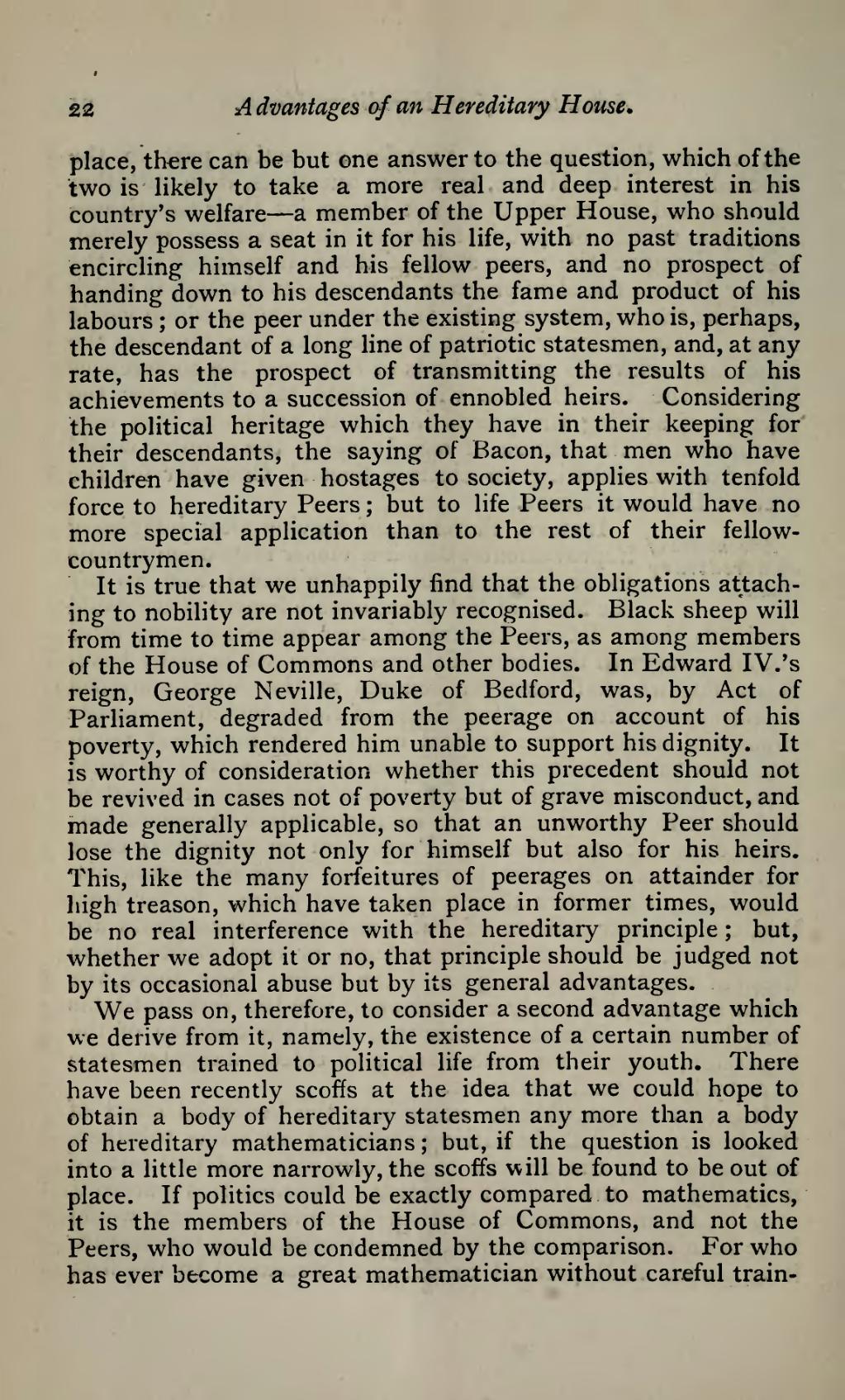place, there can be but one answer to the question, which of the two is likely to take a more real and deep interest in his country's welfare—a member of the Upper House, who should merely possess a seat in it for his life, with no past traditions encircling himself and his fellow peers, and no prospect of handing down to his descendants the fame and product of his labours; or the peer under the existing system, who is, perhaps, the descendant of a long line of patriotic statesmen, and, at any rate, has the prospect of transmitting the results of his achievements to a succession of ennobled heirs. Considering the political heritage which they have in their keeping for their descendants, the saying of Bacon, that men who have children have given hostages to society, applies with tenfold force to hereditary Peers; but to life Peers it would have no more special application than to the rest of their fellow-countrymen.
It is true that we unhappily find that the obligations attaching to nobility are not invariably recognised. Black sheep will from time to time appear among the Peers, as among members of the House of Commons and other bodies. In Edward IV.'s reign, George Neville, Duke of Bedford, was, by Act of Parliament, degraded from the peerage on account of his poverty, which rendered him unable to support his dignity. It is worthy of consideration whether this precedent should not be revived in cases not of poverty but of grave misconduct, and made generally applicable, so that an unworthy Peer should lose the dignity not only for himself but also for his heirs. This, like the many forfeitures of peerages on attainder for high treason, which have taken place in former times, would be no real interference with the hereditary principle; but, whether we adopt it or no, that principle should be judged not by its occasional abuse but by its general advantages.
We pass on, therefore, to consider a second advantage which we derive from it, namely, the existence of a certain number of statesmen trained to political life from their youth. There have been recently scoffs at the idea that we could hope to obtain a body of hereditary statesmen any more than a body of hereditary mathematicians; but, if the question is looked into a little more narrowly, the scoffs will be found to be out of place. If politics could be exactly compared to mathematics, it is the members of the House of Commons, and not the Peers, who would be condemned by the comparison. For who has ever become a great mathematician without careful train-
